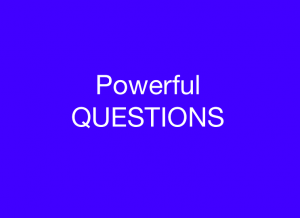For 6 years I have been the managing director of Factfish GmbH, a data analytics company, where I have been intensively involved with data, facts, statistics and data analysis. The quality of the question I ask the computer has a direct influence on the answers, which in turn form the basis for my decisions.
These findings motivate me to shed light on this topic and invite the readers of my blog to engage in dialogue.
What effects will it have if our education systems teach people less „know-how“ and more „know-why“?
Learning from others:
My curious grandchildren ask many questions – incessant streams of „Why? – Why not?
Does that sound familiar to you?
Think of your time as a child and at school. You probably received the most recognition or reward if you had the right answers. Later in life, this incentive continues. In companies, you often reward those who answer questions, not those who ask questions. It is often the case that questioning traditional wisdom leads to this being seen as a threat.
Because expectations for decision-making include „do it soon, do it now – it should have been done yesterday“, we tend to jump to conclusions rather than ask further questions. The unfortunate side effect of not asking enough questions is poor decision-making.
Conclusion: „The art of asking questions – relearning.“
In order to improve our decision-making, we need to slow down and take the time to ask more – and better – questions.
At best, we will come to better conclusions. In the worst case, we will avoid a lot of rework later.
Why is leadership know-how no longer sufficient?
The success of a company does not depend solely on „know-how“, on specialist knowledge. The management of the future concentrates on the „know-why“:
- What’s the point of what I’m doing?
- What are the values of my actions?
Know-why im Unternehmen
(Wir entwickeln neue Datengeschäftsmodelle für Ihr Unternehmen)
Neue Geschäftsmodelle werden zunehmend durch SmartData aktiviert
Inspirationen:
Vier Arten von Fragen
How great leaders inspire actions (Simon Sinek)
Meine Empfehlung:
Vom „Know-How zum Know-Why“ – Der Film „Die stille Revolution“


